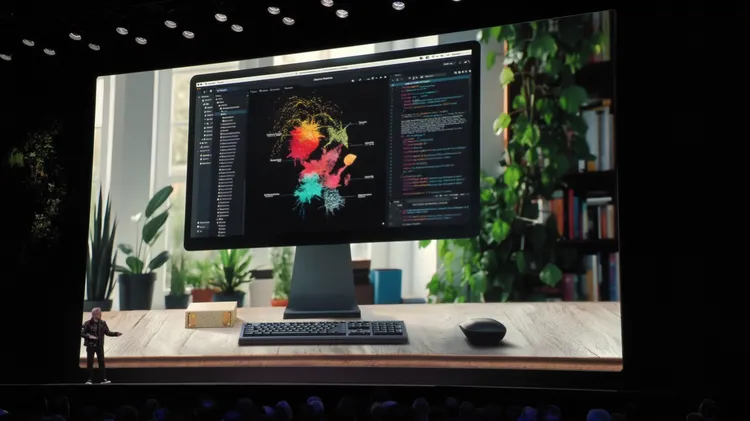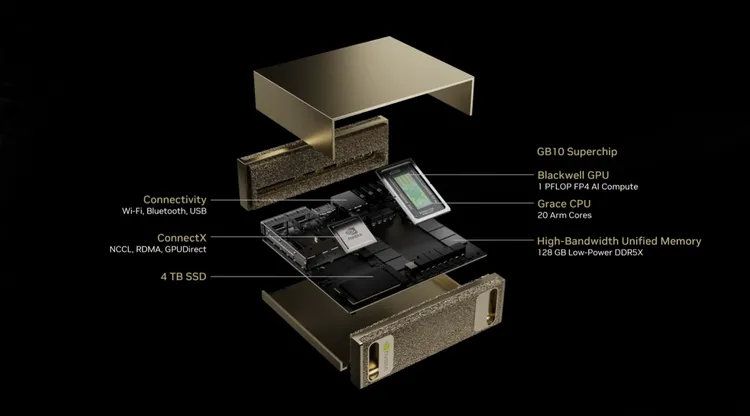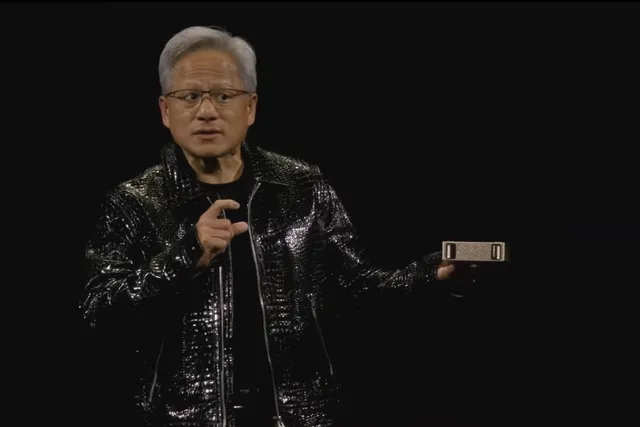This desktop-sized system can handle AI models with up to 200 billion parameters.
If you’ve ever dreamed of owning a personal AI supercomputer, Nvidia just made that dream a reality. At CES, the tech giant announced its groundbreaking Project Digits, an AI-focused personal supercomputer designed to bring cutting-edge computing power to the desks of developers, researchers, and students alike. Launching in May, Project Digits promises to redefine AI accessibility, all while starting at a surprisingly approachable $3,000.
At the heart of this marvel lies the all-new GB10 Grace Blackwell Superchip, an engineering feat that combines raw processing power and compact efficiency. Imagine a system capable of running advanced AI models with up to 200 billion parameters—all while being small enough to sit on your desk and powered by a standard outlet. This level of performance, which once required massive, power-hungry setups, now comes in a sleek form factor reminiscent of a Mac Mini.
The Age of AI on Every Desk
“AI will be mainstream in every application for every industry. With Project Digits, the Grace Blackwell Superchip comes to millions of developers,” said Nvidia CEO Jensen Huang in a press release. “Placing an AI supercomputer on the desks of every data scientist, AI researcher, and student empowers them to engage and shape the age of AI.”

Indeed, Nvidia’s ambitious vision aims to democratize AI innovation by equipping individuals with tools previously reserved for enterprise-level operations. From advanced AI research to real-time machine learning model testing, Project Digits unlocks unprecedented potential for creativity and development.
Unmatched Specifications for AI Enthusiasts
Let’s dive into the specs that make Project Digits a game-changer:
- Memory & Storage: Each unit comes with a staggering 128GB of unified, coherent memory. To put that into perspective, even high-end laptops typically max out at 32GB of RAM. Additionally, the system includes up to 4TB of NVMe storage for lightning-fast data access and ample room for large datasets.
- Scalability: Need even more power? Two Project Digits systems can be linked together, effectively doubling the capability to support AI models with up to 405 billion parameters. This configuration puts it on par with Meta’s state-of-the-art Llama 3.1 model.
- Performance: The GB10 chip delivers up to 1 petaflop of AI performance, meaning it can perform a jaw-dropping 1 quadrillion AI calculations per second. Utilizing FP4 precision, this chip optimizes speed by approximating calculations without sacrificing accuracy. The inclusion of Nvidia’s latest CUDA cores and fifth-generation Tensor Cores ensures blistering performance for both training and inference tasks.
- Processor Collaboration: The Grace Blackwell chip integrates seamlessly with a Grace CPU featuring 20 power-efficient Arm-based cores. Developed in collaboration with MediaTek, this CPU is optimized for peak performance and energy efficiency, making Project Digits as eco-friendly as it is powerful.

A Software Ecosystem Tailored for Developers
Project Digits isn’t just about hardware; Nvidia has paired it with a robust software ecosystem to maximize its potential. Here’s what developers can expect:
- Nvidia AI Software Library: Users gain access to Nvidia’s comprehensive AI software catalog, including development kits, orchestration tools, and pre-trained models through the Nvidia NGC catalog.
- Framework Support: The system supports industry-standard tools like PyTorch, Python, and Jupyter notebooks, enabling seamless integration into existing workflows.
- Specialized AI Frameworks: Developers can fine-tune models using Nvidia’s NeMo framework and speed up data science workflows with RAPIDS libraries.
- Deployment Flexibility: Train and test models locally on Project Digits, then deploy them effortlessly to cloud services or data centers using the same Grace Blackwell architecture and Nvidia AI Enterprise platform. This end-to-end compatibility ensures a smooth transition from prototyping to production.
Democratizing AI: From Hobbyists to Enterprises
Project Digits isn’t Nvidia’s first step toward making AI more accessible. In December, the company launched the Jetson Orin Nano Super, a $249 AI computer tailored for hobbyists and startups. While the Orin Nano supports models up to 8 billion parameters, Project Digits takes things to a whole new level, offering a platform that bridges the gap between individual creators and enterprise-level AI.
Revolutionizing AI at Home and Beyond
With Project Digits, Nvidia is poised to empower the next generation of AI pioneers. Its affordable pricing, coupled with unparalleled performance and developer-centric features, makes it a compelling choice for anyone looking to harness the power of AI.
Whether you’re a seasoned data scientist or a curious student exploring the frontiers of machine learning, Project Digits ensures that the tools to innovate are just a power outlet away. May can’t come soon enough.










